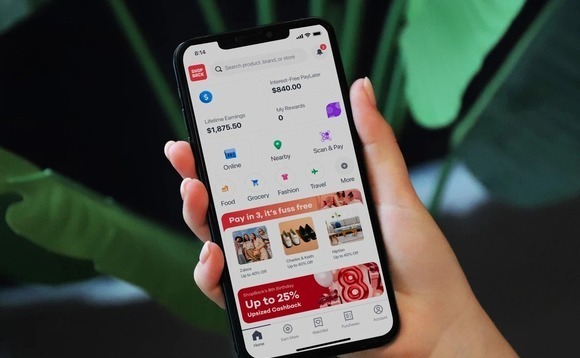
Deal focus: Confidence unwavering in SE Asia e-commerce

Singapore online shopping platform ShopBack hopes to extend a fledgling theme of Southeast Asian IPOs in the US amid threats to discretionary spending in its core markets
When Singapore-based mobile internet platform Sea raised USD 884m in a NASDAQ offering in 2017, it became the first major consumer internet company to go public in the US. In theory, this helped to de-risk the region and prove the plausibility of recreating a China IPO roadmap established 10 years prior.
It took more than four years for a second example to materialise in the form of ride-hailing and consumer services app Grab, which debuted on the same exchange via a merger with a special purpose acquisition company (SPAC) in December 2021 at an enterprise valuation of USD 30.4bn.
Momentum has picked up from there, however. Malaysia-headquartered real estate portal PropertyGuru listed in the US (also via SPAC) three months later and Indonesia's GoTo, Grab's closest rival, has also targeted a near-term US listing, following a Jakarta IPO in April.
Singapore-based e-commerce and retail rewards platform ShopBack is watching this space and has begun ramping up its IPO readiness with its latest growth round. The timeline and target exchange have not been set, but the US is the clear target.
Asia Partners, whose key value-add promise is to support US public listings, led the USD 80m round. The VC firm is led by Nick Nash, formerly president of Sea, who noted ShopBack will invest heavily in risk, compliance, and governance capabilities to ensure a solid, IPO-ready foundation.
"The ShopBack team has always focused on strong unit economics and disciplined growth," Nash said.
"This is particularly relevant in an investment climate that rewards sustainable and profitable companies, and underscores one of ShopBack's key milestones as it readies itself for the public markets. Being able to demonstrate financial viability across multiple business lines and markets at scale would be central to its growth story going ahead."
The investment, billed as a Series F round and including a contribution from existing backer January Capital, brings total funding to USD 230m since inception in 2014. This includes two Temasek Holdings-led rounds worth a combined USD 115m in the past two years. ShopBack was reportedly targeting USD 150m at a valuation of USD 1bn as recently as February.
The business model is described as a matchmaking play: connecting 10,000 merchants on the likes of Alibaba Group's Taobao and Lazada platforms, Expedia, and Zalora with 35m shoppers across 10 regional markets. This is facilitated by a suite of discovery, rewards, and payment services.
The most recent addition to the platform, ShopBack Pay, is emblematic of a familiar COVID-driven growth story, having accrued 2m users and 3,000 merchant partners in Singapore and Australia since its launch in January. Overall, the company's user base has grown 84% since the start of the pandemic. Currently, about 1m consumers a day drive USD 3.5bn in annual sales, mostly in Southeast Asia.
ShopBack envisions itself as a way for these consumers to shop smarter amid a high-inflation environment and looming recession. But much of its recent traction and growth outlook is based on point-of-sale credit for non-essential merchandise in developing markets.
One of its biggest operational coups came in November last year with the 100% acquisition of Singapore-based buy now, pay later (BNPL) player Hoolah. That gambit was reinforced earlier this year with the hiring of Hamish Moline, formerly of Australia-listed BNPL company Zip, as a managing director responsible for financial services.
Many of ShopBack's main retail categories are discretionary in nature, among them travel, fashion, and beauty. But Nash remains confident in the face of macro gloom, noting that the BNPL function allows consumers to responsibly afford larger-ticket purchases, take control of their personal cash flow, and steer away from predatory lending and revolving credit.
"The ShopBack business model is interesting because it remains relevant to consumers and merchant partners both in economic up- and down-cycles. In recessionary times, merchants will be more watchful of marketing spend and flock to channels like ShopBack that yield the highest returns," he said.
"Similarly, while discretionary spending may decline, consumers will look to stretch their dollar on day-to-day expenditure – on groceries, food and transport, for example – while indulging in the occasional treat. Given the broad range of categories covered by ShopBack, relevance to consumers will only increase."
Latest News
Asian GPs slow implementation of ESG policies - survey
Asia-based private equity firms are assigning more dedicated resources to environment, social, and governance (ESG) programmes, but policy changes have slowed in the past 12 months, in part due to concerns raised internally and by LPs, according to a...
Singapore fintech start-up LXA gets $10m seed round
New Enterprise Associates (NEA) has led a USD 10m seed round for Singapore’s LXA, a financial technology start-up launched by a former Asia senior executive at The Blackstone Group.
India's InCred announces $60m round, claims unicorn status
Indian non-bank lender InCred Financial Services said it has received INR 5bn (USD 60m) at a valuation of at least USD 1bn from unnamed investors including “a global private equity fund.”
Insight leads $50m round for Australia's Roller
Insight Partners has led a USD 50m round for Australia’s Roller, a venue management software provider specializing in family fun parks.







